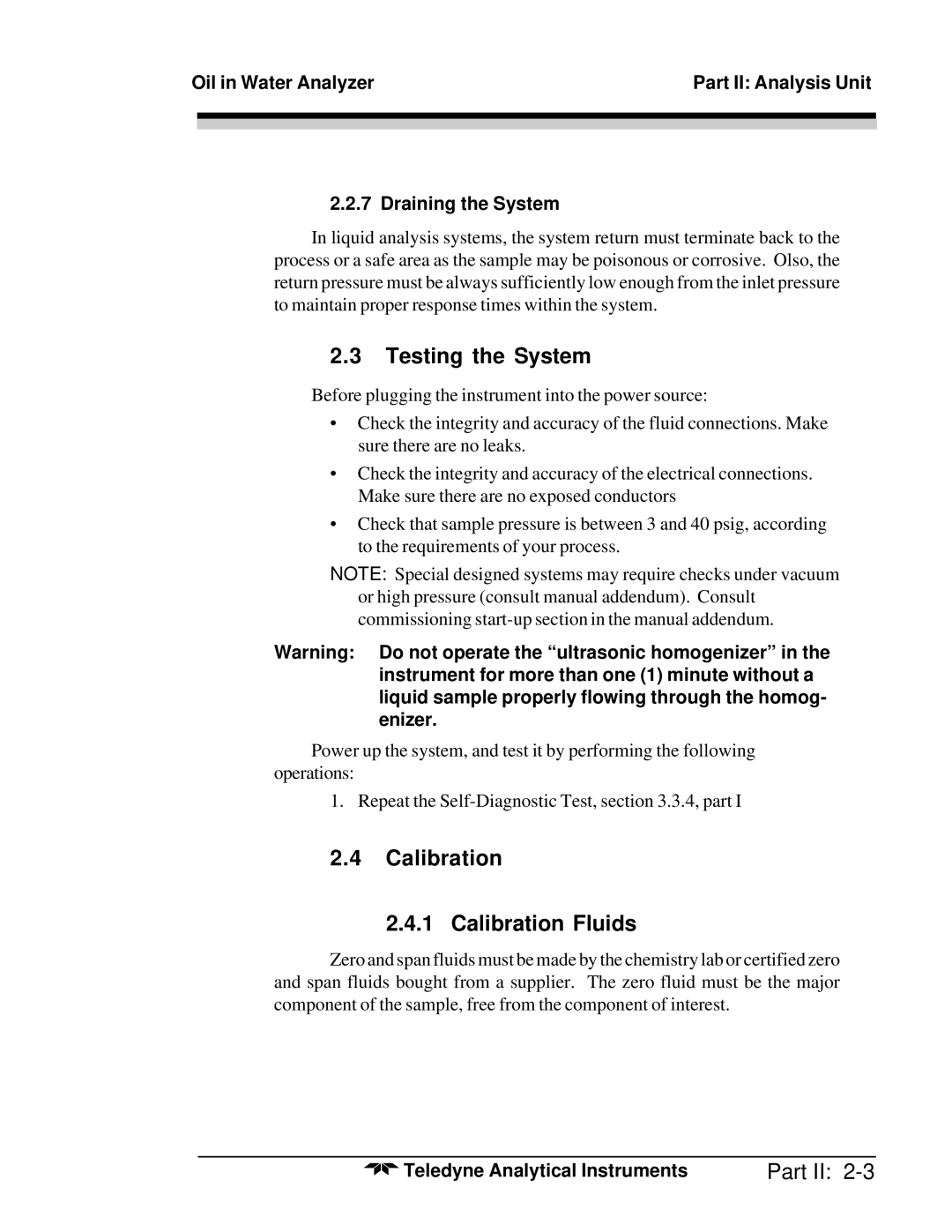Oil in Water Analyzer | Part II: Analysis Unit | |
|
|
|
|
|
|
|
|
|
2.2.7 Draining the System
In liquid analysis systems, the system return must terminate back to the process or a safe area as the sample may be poisonous or corrosive. Olso, the return pressure must be always sufficiently low enough from the inlet pressure to maintain proper response times within the system.
2.3Testing the System
Before plugging the instrument into the power source:
•Check the integrity and accuracy of the fluid connections. Make sure there are no leaks.
•Check the integrity and accuracy of the electrical connections. Make sure there are no exposed conductors
•Check that sample pressure is between 3 and 40 psig, according to the requirements of your process.
NOTE: Special designed systems may require checks under vacuum or high pressure (consult manual addendum). Consult commissioning
Warning: Do not operate the “ultrasonic homogenizer” in the instrument for more than one (1) minute without a liquid sample properly flowing through the homog- enizer.
Power up the system, and test it by performing the following operations:
1. Repeat the
2.4Calibration
2.4.1 Calibration Fluids
Zero and span fluids must be made by the chemistry lab or certified zero and span fluids bought from a supplier. The zero fluid must be the major component of the sample, free from the component of interest.
Teledyne Analytical Instruments | Part II: |
